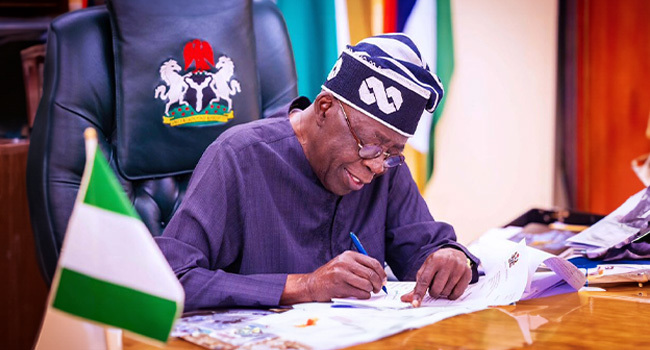Stakeholders are urging for a coordinated approach in the enforcement of President Bola Tinubu’s executive order, which eliminates tariffs, excise duties, and value-added tax on imported pharmaceutical ingredients. They emphasize that this initiative must be part of a broader, long-term strategy to address Nigeria’s manufacturing sector challenges.
A wide range of private sector leaders have welcomed the executive order. Dr. Chinyere Almona, Director-General of the Lagos Chamber of Commerce and Industry (LCCI), praised the order as a bold and timely move aimed at unlocking the healthcare value chain. Almona anticipates that this policy will significantly reduce production costs and enhance the competitiveness of local pharmaceutical manufacturers, especially in light of recent pharmaceutical firm exits that had worsened drug availability and increased medication costs.
“This policy intervention has come at a good time,” Almona stated, reflecting on the potential for the order to stabilize the pharmaceutical market and support local producers.
The Manufacturers Association of Nigeria (MAN) also expressed support for the executive order. MAN’s Director-General, Segun Ajayi-Kadir, highlighted that the order addresses critical issues facing the manufacturing sector. Ajayi-Kadir noted that the waiver will help local manufacturers by lowering import costs, which have been exacerbated by a high exchange rate and the recent removal of fuel subsidies impacting logistics and purchasing expenses.
“The removal of import duties will make imports cheaper and, in turn, help reduce prices for consumers,” Ajayi-Kadir explained. He emphasized that stakeholders are optimistic about expanding production capacity and improving pricing strategies as a result of the new policy.
However, economist and former President of the Chartered Institute of Bankers of Nigeria, Prof. Segun Ajibola, viewed the executive order as a temporary measure rather than a comprehensive solution. Ajibola acknowledged the order’s positive impact but argued that it alone would not be sufficient to lower drug prices in Nigeria.
“The President’s step is commendable and necessary, but it is only a short-term fix,” Ajibola said. He stressed that addressing high drug prices requires a more permanent solution, including the enhancement of local drug manufacturing capabilities and the domestic sourcing of raw materials.
Dr. Muda Yusuf, CEO of the Centre for the Promotion of Private Enterprise (CPPE), lauded the executive order as a significant fiscal policy measure with the potential to address supply-side challenges in the economy. Yusuf called for similar measures to support other sectors, such as agriculture, agrochemicals, and energy, to tackle food inflation, promote energy security, and encourage private investment.
“We need similar executive orders for agriculture, agrochemicals, and agro-allied industries to curb rising food prices. Additionally, there is a need for targeted interventions in the energy sector to enhance energy security and stimulate private investments,” Yusuf proposed.
He also advocated for support in the iron and steel sector to aid the construction industry and reduce costs for housing and infrastructure, as well as fiscal policies to support domestic petroleum refineries for foreign exchange conservation and job creation.
Yusuf concluded by emphasizing the importance of balancing short-term revenue sacrifices for long-term economic benefits: “Nigeria must be prepared to trade off some immediate revenue for substantial improvements in the medium to long term.”
In summary, while the pharmaceutical import duties waiver has been widely welcomed, stakeholders are calling for a harmonised and strategic approach to ensure the policy’s effectiveness and foster broader economic growth.




